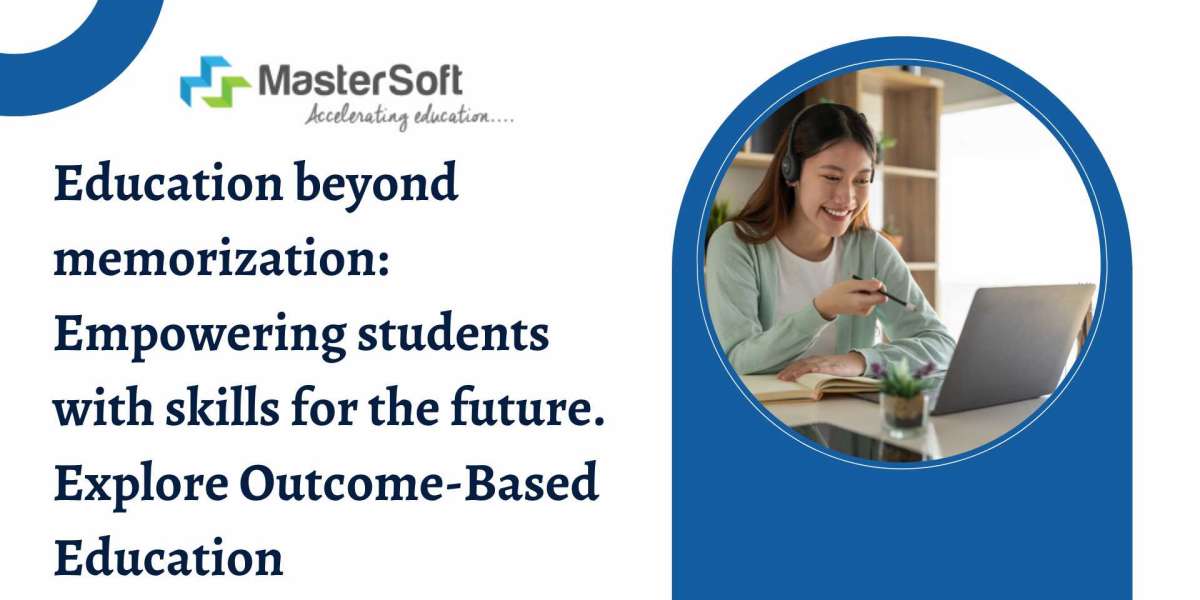The traditional education system, often criticized for its emphasis on rote memorization and standardized tests, is undergoing a significant transformation. Outcome-Based Education (OBE) emerges as a powerful alternative, prioritizing student learning and achievement of specific skills and knowledge. Let's delve into the world of OBE, exploring its core principles, benefits, and implementation strategies.
Shifting the Focus: From Content to Competence
At the heart of OBE lies a fundamental shift in focus. Instead of solely emphasizing curriculum content and standardized tests, OBE prioritizes the specific skills and knowledge students will gain by the end of a course or program. These "outcomes" are clearly defined and measurable, ensuring a clear direction for both educators and learners.
With a focus on measurable outcomes, educators can design engaging and interactive learning experiences that equip students with the necessary skills to achieve them. Imagine a classroom environment where students participate in hands-on projects, debate complex issues, and tackle real-world problems – all directly connected to the defined learning goals.
Redefining Assessment: Beyond Grades
Traditional assessments often focused on a single test score. OBE takes a more holistic approach. Evaluations become an ongoing process, incorporating a variety of assessment methods. These may include presentations, portfolios, quizzes, self-reflection exercises, peer assessments, and even industry-standard certifications. The focus shifts from simply measuring content knowledge to evaluating whether students can apply their learning to solve problems, think critically, and demonstrate essential skills.
A Symphony of Benefits: Why Embrace Outcome-Based Education?
OBE offers a plethora of benefits for both students and educators:
- Enhanced Student Engagement: Clearly defined outcomes and engaging learning experiences spark student interest and motivation. Students actively participate in their learning journey, understanding the "why" behind what they are learning.
- Personalized Learning: OBE allows for a more personalized learning approach. Educators can identify areas where individual students need additional support and tailor instruction to address those needs.
- Developed Critical Thinking and Problem-Solving Skills: The emphasis on application and real-world scenarios within OBE fosters the development of critical thinking and problem-solving skills, which are crucial for success in the 21st century.
- Data-Driven Decision Making: Ongoing assessments within OBE provide valuable data on student progress. Educators can use this data to identify areas needing improvement in the curriculum or teaching strategies, fostering continuous improvement.
- Lifelong Learning: OBE encourages students to become self-directed learners. The focus on applying knowledge and developing essential skills prepares students for lifelong learning and adapting to a rapidly changing world. Students are empowered to take initiative, solve problems independently, and continuously seek out new knowledge and skills throughout their lives.
Transparency and Accountability: Building Trust in the Process
Clearly defined learning outcomes create transparency for students and stakeholders. They understand the expected learning goals and can track their progress towards achieving them. This transparency fosters trust in the educational process and motivates students to take ownership of their learning.
Equipping Learners for the Future: More Than Just Content
OBE goes beyond rote memorization. Students don't just memorize facts; they learn to apply their knowledge to solve real-world problems. This focus on essential skills, such as communication, collaboration, critical thinking, and creativity, prepares students for success in college, careers, and beyond.
Challenges and Considerations: The Road to Implementation
Transitioning to OBE requires careful planning and implementation. Here are some key challenges and considerations:
- Teacher Training: Educators need adequate training and support to implement OBE effectively.
- Assessment Development: Creating a variety of assessment tools aligned with learning outcomes requires time and expertise.
- Resistance to Change: Overcoming resistance from teachers and administrators who are accustomed to traditional teaching methods can be challenging.
- Resource Allocation: Adequate resources, including technology and professional development, are essential for successful implementation.
Charting a Course for Success: Implementing Outcome-Based Education
Despite the challenges, the potential benefits of OBE are significant. Here are some strategies for successful implementation:
- Start Small: Begin by piloting OBE in a few classrooms or programs to build expertise and gather feedback.
- Collaboration: Foster collaboration among teachers, administrators, and stakeholders to develop a shared vision for OBE.
- Professional Development: Provide ongoing professional development opportunities for teachers to enhance their OBE implementation skills.
- Data-Driven Decision Making: Utilize data to inform curriculum adjustments, teaching practices, and resource allocation.
- Student Engagement: Prioritize student involvement in the OBE process, encouraging their feedback and ownership of their learning.
Measuring the Impact of OBE: Key Indicators
To assess the effectiveness of OBE, it's essential to establish key performance indicators (KPIs). These metrics can help measure the impact of OBE on student learning and achievement. Some potential KPIs include:
- Student achievement on standardized tests
- Student engagement and motivation levels
- Graduation rates
- Student satisfaction
- Employer satisfaction with graduate skills
By tracking these indicators, educators can evaluate the effectiveness of OBE and make data-driven adjustments to improve outcomes.
The Future of Education: OBE as a Catalyst for Change
Outcome-Based Education has the potential to revolutionize education by placing students at the center of the learning process. By focusing on measurable outcomes and student engagement, OBE can equip learners with the skills and knowledge needed to succeed in the 21st century. As technology continues to evolve, we can expect to see even more innovative approaches to OBE, further enhancing the learning experience.








